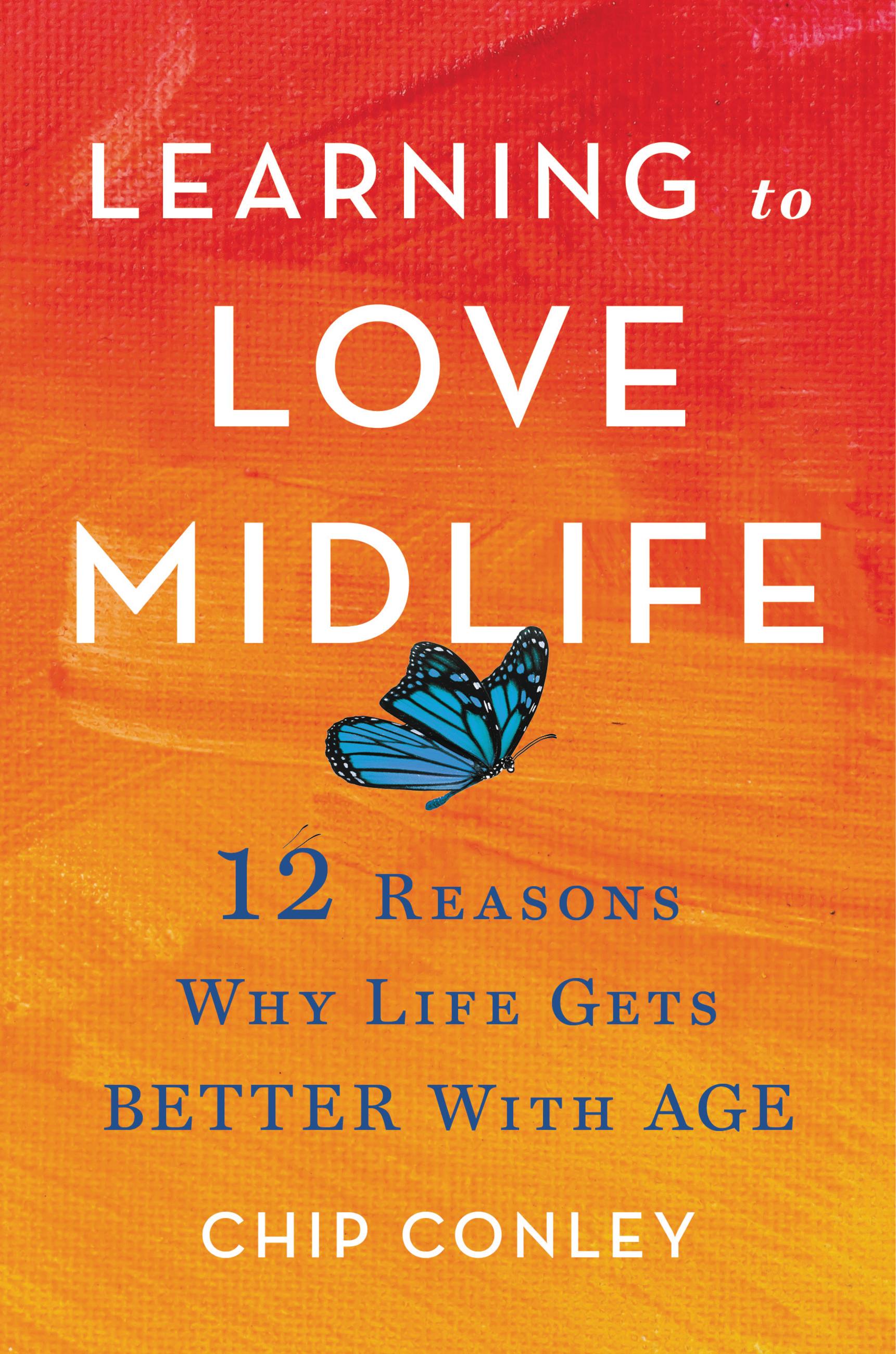Midlife Isn’t a Crisis—It’s a Calling, Says Chip Conley. Here’s How to Find Yours
Chip Conley believes midlife has a major branding problem—and he’s on a mission to change that.
The New York Times bestselling author and co-founder of the world’s first midlife wisdom school, Modern Elder Academy, says far too many of us think midlife is a time of feeling stuck, bored, and dissatisfied. “Is any other era of life yoked so consistently with the term crisis?” says Conley. “We’ve come to think—and accept—the notion that midlife is one endless sand trap on the golf course of life.”
But it doesn’t have to be that way. And in Conley’s new book, Learning to Love Midlife, he gives us the playbook we need to collectively re-brand middle age as a time of possibility.
Here, Conley explains how midlife is lasting longer than ever before (from ages 35 to 75!), why it tends to get such a bad rap, and what all of us can do to collectively change how we think about this important, transformative time in our lives.
A CONVERSATION WITH CHIP CONLEY
You write that midlife is when many of us start to realize that life isn’t turning out how we expected. Why do you think we take stock once we hit midlife?
If you look at the U-curve of happiness research, it shows 45 to 50 is the low point on life satisfaction. Why? Well, oftentimes in our 20s, 30s, and early 40s, we get on the treadmill and we’re just running. And as a result, we don’t have a lot of time to look up and ask, Am I running on the right treadmill? Or as David Brooks might ask, Am I climbing the right mountain? We focus on being successful, however we define that.
Then in our later 40s, what happens is what Brené Brown calls the “midlife unraveling.” There’s a collection of expectations we had about how our life was going to be, and they start to unravel. This is around the time you can also start to see the future, and maybe you start to worry there are some dreams you had that are just not going to be part of that future—or at least that’s what you believe.
What do we do if we’re feeling dissatisfied after we do this assessment?
Disappointment equals expectations minus reality—in other words, when we’re disappointed, it’s because our expectations were better than reality. If this is the case, we need to evolve our expectations. Not just adjust our expectations, but clarify what’s important so we can start to edit what’s not important. Midlife is an opportunity to stop caring about the things or the people that no longer matter in your life in order to focus on what does matter.
You say midlife lasts from age 35 to about 75. That’s a big range! Can you explain?
People are living longer, and therefore people are staying relevant in how they see their vocational life far into their 70s and beyond. It’s estimated that the number of people who are going to be 75 and working full time in the next decade is about a third of the population, compared to the 5 percent it used to be.
Midlife is a marathon. It lasts a long time these days.
How can all of us best prepare for the second half of our lives?
The number one question I would urge you to ask is this: What is it that you know now or have done now that you wish you’d known or done 10 years ago? This is another good question: Ten years from now, what will you regret if you don’t learn it or do it now?
One of the things midlife is meant to do for us is to create a seize-the-day perspective on life. How can we live our lives in a way that feels consciously curated? When you get very clear on what matters to you and edit what doesn’t matter, you’re better able to access your purpose and really flourish. When we are flourishing, we feel a sense of generativity, which means to generate things for the benefit of often those younger than you.
For those who are past mid-life, does the advice change?
I think the advice becomes even more acute.
Also, later life is about having the time affluence to invest in your social wellness. We tend to think of wellness as being a personal endeavor. But the most important studies that look at older, healthier, happier humans show that they are very invested in their social relationships.
You say that our obsession with getting older is often so focused on the physical that we don’t focus on how it feels. How can we shift this?
Having your looks and your body define who you are is an activity of your 20s and 30s, maybe your 40s. Sure, you can invest in your body and your looks until you die. But as you get older, that’s a tougher path that takes more money and time.
Yale’s Dr. Becca Levy has shown that when people shift their mindset about aging from negative to positive, they gain seven and a half years of additional life. How can we do this? I think we can start by creating a collection of people in our lives who are similarly aged so we can go through all the changes involved in aging together. You went through adolescence with a collection of friends and peers who were going through hormonal, emotional, physical, and identity transitions. So, ask yourself: Who will be your middlescence peer group with whom you can go through this life stage? If you have a posse going through similar physical changes, it can help you to feel more comfortable in your own skin as it starts to sag.
What can all of us do to “own our wisdom” in midlife and beyond?
When I was 28 years old, I started doing a practice that I continue to do now. Every weekend, I make a list of my key lessons of the week. Often our painful life lessons are the raw material for our future wisdom. If you can make sense of the experiences you’re having and the lessons you’re learning, not only does it make you wiser, but it also gives you a sense of meaning.
This is what we try to do at Modern Elder Academy, the world’s first midlife wisdom school. We continuously ask: How do we help people make sense of their life experiences and metabolize it in such a way that it becomes wisdom that is not only good for themselves, but wisdom they can share? Because wisdom is a social good.

Chip Conley is the founder and CEO of MEA (Modern Elder Academy) and a New York Times bestselling author. His newest book is Learning to Love Midlife: 12 Reasons Why Life Gets Better with Age.
If you’ve recently had a 50th birthday or have one coming up (born between March 1, 1970 and February 29, 1976), MEA wants to celebrate you and seven of your friends with a free, three-night celebratory workshop at MEA’s campus in Santa Fe, New Mexico. To enter the “Life Begins @ 50” contest, click here.
Please note that we may receive affiliate commissions from the sales of linked products.



